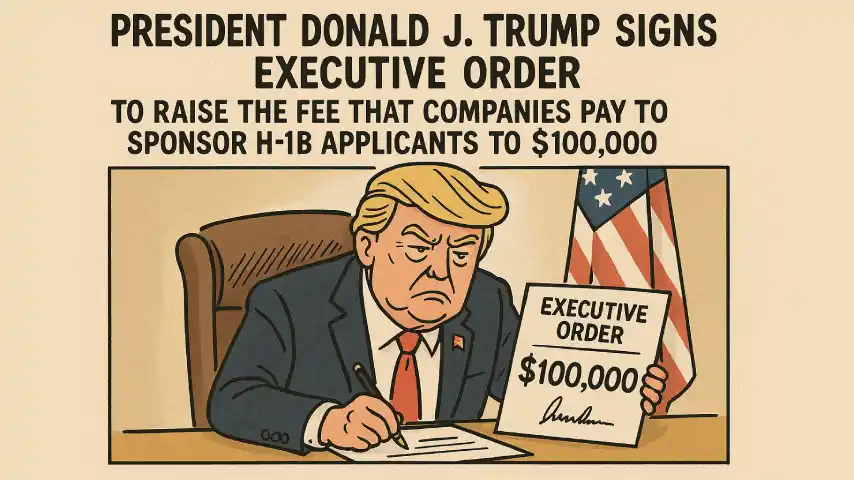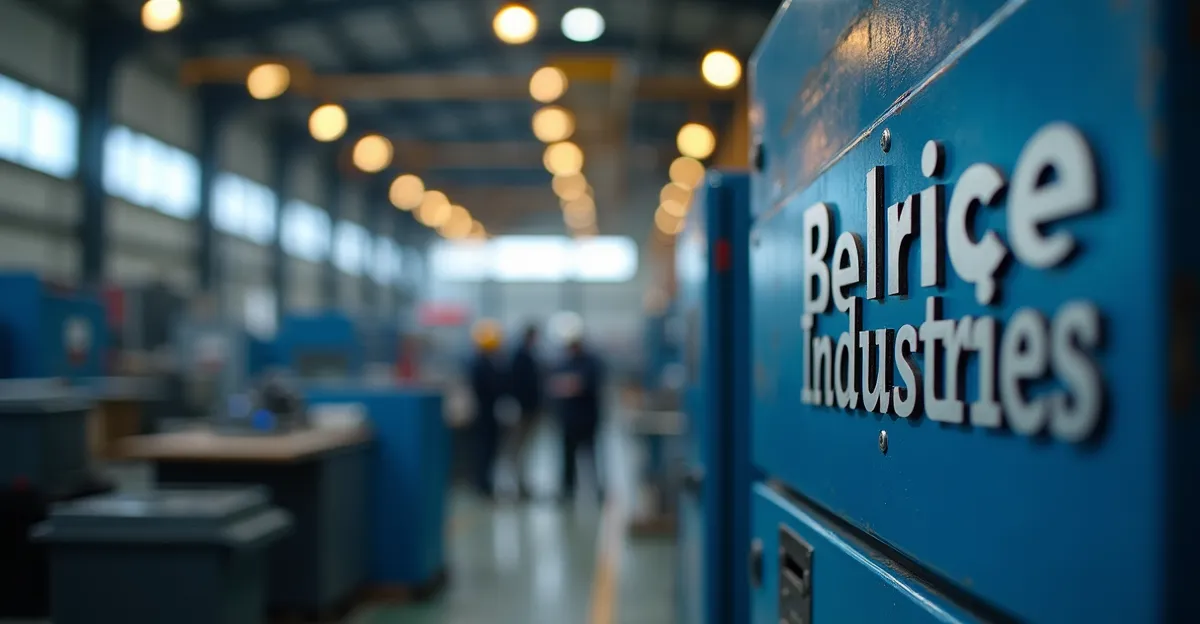The United States has announced an increase in fees for the H‑1B work visa. This announcement was made on September 19, 2025. Now, for applying for a work visa, an annual fee of $100,000 (approximately ₹88 lakhs as per India’s inflation estimate) will be mandatory. These new rules will be effective from September 21.
What is the H‑1B visa?
The H‑1B visa is a work permit that allows highly skilled foreign professionals to work in the United States. This visa is mainly for people in fields like IT, engineering, science, medicine, and finance. Initially, it is granted for three years and can be extended for another three years if needed. U.S. companies sponsor these professionals.
Why did the U.S. increase the fees?
The Trump administration claims that the current H‑1B visa program has been misused by some companies. They have brought in foreign workers at lower wages, thereby taking away jobs from American citizens. Hence, the policy is being revised. By increasing the visa fee, the aim is to prioritize “only top-level skilled” professionals.
The New Rule: $100000 Annual H-1B Visa Fee
According to the new order, if any company wants to submit someone for an H‑1B visa, the company will have to pay $100,000 annually for each visa holder. This rule will be effective from September 21, 2025. Due to the rising costs, some companies have asked employees abroad to return soon.
This fee may be waived for some industries or companies if they are working in the “national interest” or “for the benefit of the United States.”
How Will This Affect India?
India is the country from which the largest number of H‑1B visa holders originate. In 2024, about 71% of the H‑1B visas went to Indian professionals. China is in second place, receiving around 11.7%.

Due to the new fee, Indian tech companies will face a heavy financial burden. Companies like Amazon, Microsoft, TCS, Infosys, and Cognizant will face a massive increase in cost per employee.
Opportunities may decrease for students, graduates, or those seeking entry-level jobs. Companies may now consider giving H‑1B visas only to individuals with “premium skills.” Also, the future cost of obtaining a visa may rise so much that individuals may be forced to reconsider moving abroad.
Industry and employee reactions
Nasscom has expressed concern over this decision. They stated that this sudden decision will affect onshore projects and put great pressure on the Indian tech industry. Businesses will now have to revise their cost estimates.
Some companies and employees have been asked to make timely decisions—e.g., Microsoft and Amazon have advised their H‑1B visa holders to stay in the U.S., or return soon if they are abroad.
Could This Create Opportunities Within India?
This decision may improve the situation in some areas. For example, if companies are required to train local American workers instead of relying on foreign workers, local employment opportunities will increase. Also, investment in skill-developing industries will rise. For India, some experts say this could be an opportunity—skilled individuals may choose to stay and work within the country, and the trend of international work may reduce, leading to more employment within India rather than in foreign countries.
Conclusion
For highly skilled foreign workers, the H‑1B has been a major pathway. Now, with the $100,000 annual fee, this path has become much narrower. For India, this could be a major blow. But it could also open up some opportunities. Students, engineers, and tech professionals dependent on H‑1B will now need to understand the new policy and plan accordingly.
There may also be legal challenges to this decision. It could go through judicial review. But for now, these are the rules, and their immediate effects will be seen. It is certain that this will impact future visa policies, job opportunities, and global skill trade.
Questions and Concerns (FAQs)
Q: Is this new $100,000 fee only for visa applications?
A: Yes and no. This fee is charged from the company-sponsoring-employer for each H‑1B application. Whether it includes other processing charges is not clearly mentioned in some decisions, but this is the main new cost.
Q: Will this rule apply to all H‑1B applications?
A: This rule will be applicable from September 21, 2025, and will apply to new entrants and new applications. Some exemptions may be provided if the applicant’s industry is working in the national interest.
Q: What should India’s IT companies expect?
A: IT companies will now have to revise their cost estimates. Fewer people may be sent on some projects, and some work may have to be done offshore. Selection of employees will be more stringent. Opportunities for entry-level positions may decline.
Q: What should employees or students do immediately?
A: If you are an H‑1B visa holder currently outside India, consider returning. If your application is in process, stay informed. Talk to your company about who will bear the new cost – the company or the employee.






